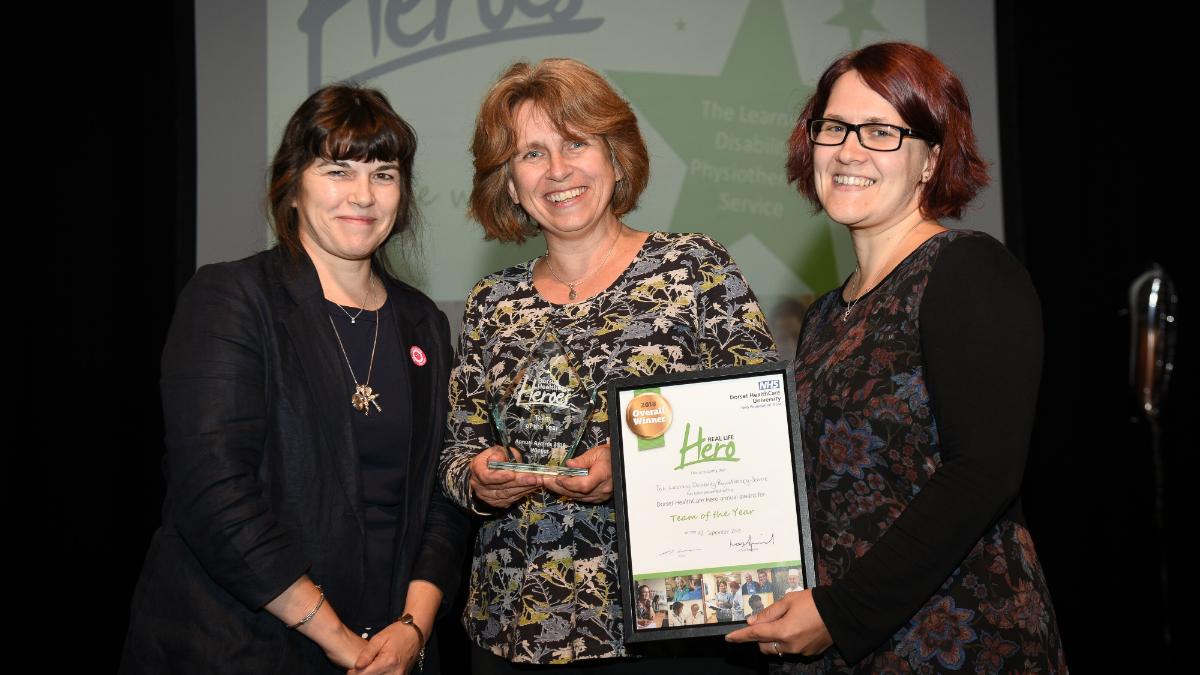A short-staffed group of physiotherapists who specialise in helping people with learning disabilities have received a ‘team of the year’ award from their trust.

The learning disability physiotherapy service at Dorset HealthCare University NHS Trust received the award last month, in recognition of the outstanding service they delivered over the past year, despite being understaffed.
The judges commented that the team had demonstrated a consistent dedication to provide a high quality of care to their service users, and had proactively supported each other during a challenging period of unfilled vacancies caused by national recruitment difficulties.
Carrie Clarke, lead clinical specialist leaning disability physio for East Dorset, and Heather Felton, lead clinical specialist leaning disability physio for West Dorset, collected the award on behalf of the team.
Miss Clarke said: ‘We are very proud of our physios who work tirelessly to deliver a high quality of care to service users across the county, and are a great support to each other.
‘When we are fully staffed we have 10 physiotherapists, in eight teams, covering all of Dorset, so it doesn’t take many vacancies to have a significant impact on the team.
‘Over the past two years our physios have drawn together on each other’s strengths and supported each other in our weaknesses.
‘It’s not been an easy journey, but we are proud to say we have always kept our service users at the heart of everything we do and we have ensured we have continued to work proactively in order to maintain the high quality of the service we provide to our service users, despite these difficulties.’
An adaptable, individually tailored approach
The learning disability team offer a specialist physiotherapy service for adults with learning disabilities across Dorset, working with clients with mild, moderate, severe, or profound learning disabilities.
‘We offer assessment and treatment for short term rehabilitation goals as well as long-term monitoring for clients with profound and multiple learning disabilities with long-term and complex physical disabilities,’ Miss Clarke explained.
‘We use a fun and adaptable approach to enable us to meet the individual needs of our clients. And we work alongside carers and support staff in the client’s daily environments to ensure our input is need specific.’
She added that exercise programs and information are adapted to suit each client’s communication and comprehension abilities in order to enable maximum participation.
‘Making every program meaningful and fun for the client is crucial,’ she said.
‘And we also offer education and training sessions for the client’s carers or support staff to enable them to support clients with their treatment program, where appropriate.
‘This ensures that the client gets the maximum benefit from physiotherapy input in order to prevent recurrence, further health complications, and hospital admissions.’
Number of subscribers: 1